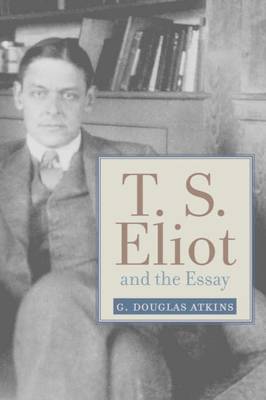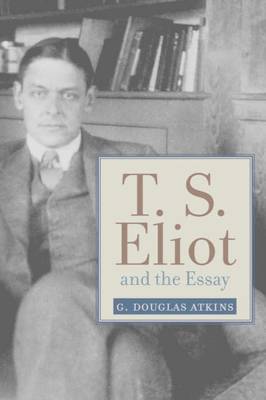
- Retrait gratuit dans votre magasin Club
- 7.000.000 titres dans notre catalogue
- Payer en toute sécurité
- Toujours un magasin près de chez vous
- Retrait gratuit dans votre magasin Club
- 7.000.000 titres dans notre catalogue
- Payer en toute sécurité
- Toujours un magasin près de chez vous
Description
G. Douglas Atkins here offers an original consideration of T. S. Eliot's essay as a form of embodied thinking. A combination of literature and philosophy, the genre of the essay holds within itself a great tension--that between truth and creative prose. And, as Atkins explains, these conflicting forces of truth and creativity exist not only within the literary format itself but also within the writers and their relationships with the genre, making essay writing a wonderfully enriching "impure art."
Exploring the similarities between Eliot's prose and poetry with the art of essay writing, Atkins discovers remarkably similar patterns of Incarnational thinking that emerge in each. In so doing, he establishes for the first time the essayistic nature of the great poem Four Quartets and provides an eloquent reflection on how the essay in all its impurity functions as Incarnational art, an embodiment of truth.
Spécifications
Parties prenantes
- Auteur(s) :
- Editeur:
Contenu
- Nombre de pages :
- 160
- Langue:
- Anglais
- Collection :
Caractéristiques
- EAN:
- 9781602582552
- Date de parution :
- 15-09-10
- Format:
- Livre relié
- Format numérique:
- Genaaid
- Dimensions :
- 163 mm x 233 mm
- Poids :
- 421 g







